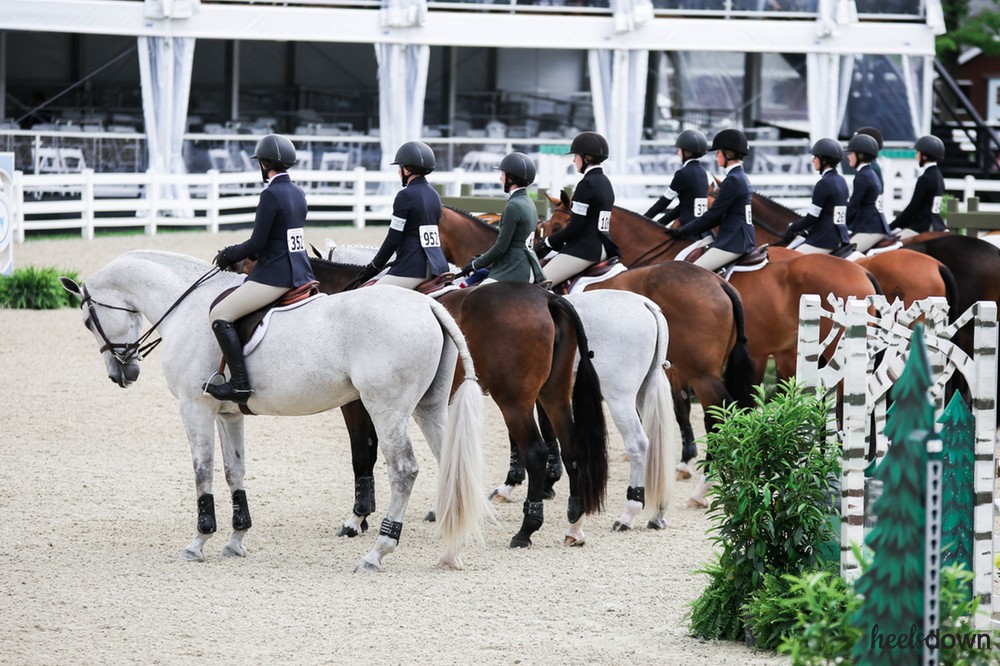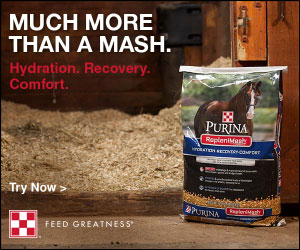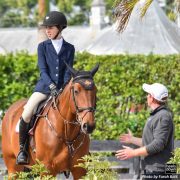Is Horsemanship Dead?

Opening eyes refers to the process of learning what you don’t know. It can be hard to be humble enough to learn and not too proud or nervous to ask questions.
Mary Babick is the president of the U.S. Hunter Jumper Association. She’s been a professional horsewoman for more than 38 years, earning her instructor certifications from the British Horse Society and through the USHJA. Aside from training many notable riders in the hunters and equitation, Mary is also a USEF registered judge, and has officiated at competitions across the U.S.
The USHJA Emerging Athletes Program was created in 2009 to give young riders the opportunity to advance their education and become more knowledgeable horsemen.
By Mary Babick
If you read articles and social media posts regarding the horse world, you might receive the impression that horsemanship is, at worst, dead and, at best, fatally wounded. In my opinion, although there are pockets of people with little to no horsemanship knowledge, the riders at the USHJA Emerging Athletes Program prove that horsemanship is alive and well.
Who are these Emerging Athletes riders? And why are they so passionate about horsemanship?
The Emerging Athletes Program is an immersive experience in riding, stable management and teamwork. To apply, riders must be 25 years of age or younger and be capable of jumping a course at 1.10 meters, receive recommendations on their riding and stable management skills and write an essay on their goals. Each year, 10 regional training sessions are held and 240 riders are invited to participate.
The riders attend a five-day regional training session where they learn from top riding clinicians, stable managers and from each other. The regional training sessions culminate in a national training session and finals for 16 riders. The rider that demonstrates the highest level of riding ability, stable management, horse knowledge and teamwork is declared the winner.
EAP stresses horsemanship, opportunity, community and teamwork. Yes, it is partially a competition to see who can make it to nationals. But, at the same time, it is an all-encompassing experience in how to do things in the horse world. It is a time to practice and perfect your craft. It is a time to learn that there are many, many different ways to achieve the same task. It is a time to bond – with your horse and your fellow athletes. It is a time to network and build an equestrian community.
Whether we realize it or not, our horse world is a community. As disparate as we are, we still share common interests and goals. In some parts of our community we also share the same attitude. The Emerging Athletes Program is a place where the participants share both a can-do attitude and a burning desire to become horsemen.
This is a life experience. Things don’t always go as per plan. For all concerned, it is an experience in lifesmanship.
When I am at horse shows, I see many of the EAP athletes. They are easily recognizable for two reasons. One, they proudly display the EAP logo on their shirts, saddle pads, and hats. Two, they are always hard at work taking care of their horse. I know many of them because I have had the pleasure of working with them at training sessions. I spot others because of their brand identity. They love to spot each other and even when they did not attend the same training session, there is a sense of shared experiences and community.
EAP builds both teamwork and life skills.
Of course, not every person loves their EAP experience. Sometimes they have a rough go with a clinician. Other times their horse failed to meet their expectations. In other cases, they find out that they have holes in their knowledge that must be fixed. Since it is a competition to get to finals, sometimes they are angry that they didn’t make it to the next round. Again, this is a life experience. Things don’t always go as per plan. For all concerned, it is an experience in lifesmanship.
EAP’s tag line is “Opening eyes and opening doors”. The program is designed to identify and refine talent in our young horsemen to be. Opening eyes refers to the process of learning what you don’t know. It can be hard to be humble enough to learn and not too proud or nervous to ask questions. The program also opens doors for the participants. Since the clinicians, stable managers and committee members become part of their network, we are able to guide them to new opportunities such as riding and working student positions or full-time employment.
I can’t speak highly enough of these young horsemen. I have mentored them, had them as working students and hired them for full time positions. The spirit of horsemanship burns bright in them and their youth and passion give me great hope for the future of our fantastic sport. They have an unquenchable thirst for learning and their drink of choice is horsemanship.


